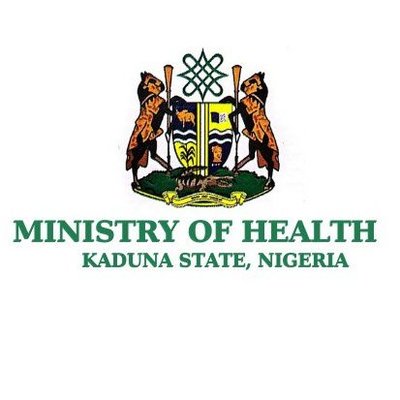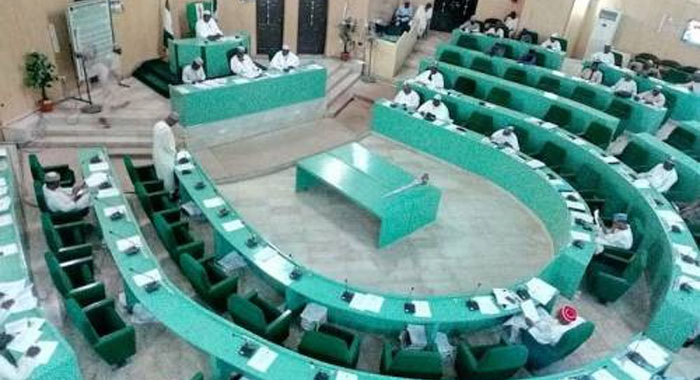Health
World Kidney Day: Senate wants NHIS coverage for chronic kidney disease

The Senate has urged its Committees on Health to lobby for expansion of comprehensive coverage on treatment of chronic disease patients in the National Health Insurance Scheme (NHIS).
It also urged the committee to work toward ensuring that financial constraints did not hinder access to essential treatments of chronic kidney disease patients.
The Senate’s resolution followed the adoption of a motion for increased awareness and improvement of Kidney treatment facilities in Nigeria at plenary on Thursday.
The motiocn was sponsored by Sen. Abdulaziz Yar’adua (APC-Katsina) to mark the World Kidney Day.
Yar’adua, in his lead debate, said that recent statistics from the Nigerian Association of Nephrology, revealed that an alarming 25 million Nigerians were living with kidney disease.
According to him, this calls for urgent attention to address the prevalence of the life-threatening condition and improve kidney treatment facilities in Nigeria.
He said that chronic kidney disease constituted about 40 per cent of referrals to tertiary hospitals in Nigeria and was a significant contributor to daily hospital admissions.
He said the cost of dialysis sessions in Nigeria ranged from N20,000 to N50,000 per session, adding that the situation had led to low adherence rates due to financial constraints.
He said that kidney transplant, an alternative to dialysis, was financially unattainable for many, with the cost exceeding N6.5million in some cases.
He said it was worrisome that the NHIS in Nigeria provided limited coverage for chronic kidney disease patients, highlighting the need for expanded insurance coverage to support treatment.
He urged the Federal Government and other stakeholders to launch an extensive public education campaigns to raise awareness about kidney disease prevention, risks, and available treatments.
According to him, urgent steps should be taken to enhance kidney treatment facilities across the country.
“This includes increasing the number of functional dialysis centres in tertiary health facilities, ensuring access to dialysis treatments even in remote areas and addressing the shortage of dialysis nurses and specialised technicians,” he said.
Yar’adua stressed the need to act swiftly to address the increasing burden of kidney disease in Nigeria, through increasing awareness, improving treatment facilities, expanding insurance coverage and supporting infection prevention measures.
Senate also urged the Federal Ministry of Health and other allied ministries to implement infection prevention, training and supervision protocols to safeguard chronic kidney diseases patients.
It also urged the federal government and other stakeholders to launch extensive public education campaigns to increase awareness about kidney disease prevention, risks, and available treatments.
It urged the Federal Ministry of Education and other stakeholders to include extensive public education campaigns to raise awareness about kidney disease prevention, risks and available treatments in their school curricula.
It further urged the federal government to create an intervention fund to increase the number of functional dialysis centers in tertiary health facilities and ensure access to dialysis treatments even in remote areas.
Health
FG bans use of foreign syringes, needles in tertiary hospitals


The Federal Government has mandated all Chief Medical Directors (CMDs) and Medical Directors (MDs) of Federal Tertiary Hospitals to procure needles and syringes solely from NAFDAC-approved local manufacturers.
The new directive is contained in a circular addressed to all CMDs and MDs signed by the Minister of State for Health, Dr Tunji Alausa, on Friday.
The minister said that the directive was aimed at boosting domestic production and shielding the country’s manufacturing sector from the influx of foreign goods.
The circular also mandated NAFDAC to stop issuing licences for the importation of foreign manufactured needles and syringes.
Alausa said the health sector had dentified local pharmaceutical industries that produce needles and syringes that were in serious trouble because of the practice.
He also said that out of the nine local pharmaceutical companies that produced needles and syringes eight years ago, six have folded up due to the dumping of largely substandard goods into the market.
“Mr President has directed that this must stop. We all agreed to take the necessary steps to immediately remedy this sad situation.
“Pursuant to this, NAFDAC has been mandated to stop issuing licences for the importation of foreign manufactured needles and syringes.
“It is also to de-list companies involved in the importation of these products going forward,” he said.
Alausa said ”all our tertiary hospitals are hereby directed to procure needles and syringes for your hospital needs from only the NAFDAC-approved local manufacturers listed below are listed either directly or through any of their vendors.
“EL-Salmat Pharmaceuticals Company Ltd Block, Brand Name: Salmaject, HMA Medical Ltd., with brand Name: Deleject and Afrimedical Manufacturing and Supplies Ltd.”
He also listed some of the distributors of the listed companies in some states of the Federation for easy access to assist in making the procurement process easier in the various institutions.
Health
KDSG trains 180 Red Cross volunteers on Lassa Fever intervention


The Kaduna State Ministry of Health has begun a three-day training for 180 Red Cross volunteers on Lassa fever intervention.
The training, which is facilitated by the ministry and funded by the Red Cross, is meant to equip the volunteers selected from 5 LGAs in the state with necessary skills.
The volunteers were drawn from Zaria, Igabi, Kaduna South, Kaduna North and Chikun Divisions.
The State Epidemiologist, Dr Jeremiah Dikwu, said the volunteers were trained with the knowledge needed to massively intervene during cases of Lassa fever in the state.
He said that the intervention would include Risk Communication and Active Case Search, Psychological First Aid, Rodent Control and Hygiene Promotion for the next 3 months.
Dikwu said the training started with 30 volunteers on surveillance and would end with the training of 150 volunteers on Risk Communication and Community Engagement .
According to him, Lassa fever is a viral hemorrhagic fever transmitted by rats.
He added that Lassa fever has been known since the 1950s, but the virus was not identified until 1969, when two missionary nurses died from it in the town of Lassa in Nigeria.
Dikwu added that Lassa fever was caused by a single stranded RNA virus and disseminated systemic primary viral infection.
“The main feature of fatal illness is impaired or delayed cellular immunity leading to fulminant viraemia,” he said
The epidemiologist said that Lassa fever presented symptoms and signs indistinguishable from those of febrile illnesses such as malaria and other viral hemorrhagic fevers such as Ebola.
“It is difficult to diagnose clinically but should be suspected in patients with fever (e”38°C) not responding adequately to antimalarial and antibiotic drugs.
“The most useful clinical predictors of Lassa fever are fever, pharyngitis, retrosternal pain, and proteinuria for diagnosis; and fever, sore throat, and vomiting for outcome,” Dikwu said.
He said that Ribavirin and general support were needed.
“Ribavirin is almost twice as effective when given intravenously as when taken orally, and if given within six days of the start of illness it may reduce deaths by 90 percent.
“Dehydration, oedema, hypotension, and poor renal function are common; fluid replacement or the use of blood transfusion requires careful monitoring,” he said.
Dikwu said the volunteers would be carrying out Risk communication and Community engagement, Active Case Search, Psychological First Aid, Rodent Control and Hygiene Promotion
Health
Assembly passes Kano Pre-Marital Health Screening Bill


Kano State House of Assembly has passed a bill for a law to compel intending couples to undergo HIV, hepatitis and sickle cell anaemia screening before marriage.
The passage followed deliberations in the Committee of the Whole House during plenary session,
presided over by the Speaker, Ismail Falgore on Monday in Kano.
After deliberations, the lawmakers approved the 3rd reading of the bill, read by the Deputy Clerk, Alhaji Nasiru Magaji.
Shortly after passage of the bill, the Majority Leader of the house, Lawan Hussein (NNPP-Dala), stated that “any person
intending to marry shall first submit self for medical examinations.”
He said the bill was considered and passed after the 3rd reading, following various legislative processes.
The leader further said that the bill was passed because the state had been battling with different health issues, including
HIV because people go into marriages without medical screening.
He said that the bill, if signed into law, would save many lives and curb the spread of life-threatening diseases.
“The bill will safeguard the health of citizens by institutionalising pre-marital testing to check the spread of diseases
like hepatitis, HIV and sickle cell anaemia,” he added.
-
capital market2 years ago
Rt.briscoe, FBNH, Others halts negative performance of stock market
-
Finance3 months ago
Court orders Sen. Victor Umeh to repay N136m bank debt to AMCON
-



 Abuja Update2 months ago
Abuja Update2 months agoUNDP, FG partnership needed to achieve inclusion, equity- Minister
-
Abuja Update1 month ago
Banks drive stock market performance with N147bn gain
-



 Business1 week ago
Business1 week agoTingo Group unveils Tingo Electric, Tingo Cola drink at Lagos launch
-



 Health2 weeks ago
Health2 weeks agoCapacity training will reduce migration of health workers- NPHCDA
-
News4 months ago
Oil thieves sponsoring malicious media campaign against Navy – Spokesman
-



 Infotech1 month ago
Infotech1 month agoWorld Backup Day: NITDA urges Nigerians to ensure backup of data










